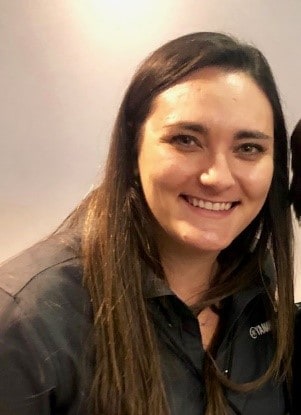Iowa's Health Link Drops the Ball
Iowa's IA Health Link launch left both providers and consumers frustrated by putting their budget before the quality of care. We analyze the missteps they took after setting unrealistic timelines for the work that needed to be done.
THE VBP Blog

More than five years after launching its MLTSS program, Iowa is a learning opportunity for most other states, as well as an opportunity for continuous improvement. The advocate in each of us laments the transition difficulties and the lost supports consumers endured. Iowa grabbed a lot of negative attention with their roll out of MLTSS managed care. In 2020, we analyzed the Intellectual and Developmentally (I/DD) disabled population rollout for IA Health Link. Their 2016 launch left many frustrated with services delayed, payments incomplete, and money lost. Since then, they’ve been fighting to right their program and increase their quality of care to their members.
Iowa Health Link
In August 2016 IA Health Link was launched by the Iowa Department of Human Services (DHS). At the time, the move to managed care involved over 568,000 dual eligible individuals that would be managed by three managed care organizations (MCOs). In that year there were 36,825 LTSS segments that were to be covered with 38% in facilities and 62% in the community.
Goals and Concerns
The Iowa state goals included improved quality and access, accountability for outcomes, and creating a realistic and sustainable Medicaid budget. Budget rose to the forefront since the state had experienced a 73% growth since 2003. The initial goal was $53.1 Million in savings in the first six months. Additionally, the LTSS goals for the managed care program were to rebalance the LTSS system towards more community-based service. The state administration and legislature had an ambitious timeline that was less than 12 months from the announcement but was delayed twice by CMS for inadequate provider networks and communication.
Case Management
The 3 MCO’s who were initially awarded the contracts (Amerigroup, AmeriHealth Caritas, and United Healthcare) took on different approaches on how to handle case management. Two of them hired internal case managers and build their own teams to go out into the community, the third established contracts with the existing case managers / service coordinators. At the last minute prior to roll out, Iowa tried to “smooth transition” by requiring MCO’s to contract with existing case management entities for the first year, relying on the relationships already built to help ease the new processes. In turn, that created a disparity in enrollment and left two of the MCO’s with far fewer LTSS enrollees, as well as significant subsequent budget impacts on the MCOs’ costs and operations.
MCO Changes
All the MCO’s have reported significant losses and Amerigroup called it a “catastrophic experience” and UnitedHealthcare said it was “significantly underfunded”. In 2017, AmeriHealth Caritas left the market all together and in 2019 UnitedHealthcare also departed the IA Health Link program. They were replaced by Centene and operating as “Iowa Total Care” in 2019 leaving only two MCO’s to handle the near 600,000 Medicaid consumers.
According to the IA Health Link Managed Care Annual Report for 2020, the two MCO’s have 33,017 consumers, which is about 10% less than the originally anticipated LTSS enrollment expectations.
Results
Since the beginning with MCO’s losing money hand over fist and consumers unsure of who or where their case was being managed, this program has been very troubled. In 2017, Disability Rights Iowa and National Health Law program filed a class-action lawsuit saying illegal cuts in services have left those with disabilities without care. While the lawsuit has since been dismissed for technicalities, it highlights the consumer exposure and the potential risks to maintaining services when the parameters are not clearly delineated.
Iowa has made some moves in the right direction. Their most recent IA Health Link Report for 2020 shows 100% of grievances were resolved within 30 calendar days and level of care assessments are being done on or above the contract level requirement of 95%. There are some red flags, however, such as Iowa Total Care has 75 members to each care coordinator caseload. as compared to Amerigroup’s substantially smaller caseload per coordinator. Also, there are very little shifts from their 2016 numbers of 64% in Home and Community Based Services to 36% in facility-based services, this does not compare favorably to the results in other states as we will report in future analyses.
Advocate’s Perspective
The most significant missteps in the Iowa MLTSS rollout relate the pillars we identified in our conclusions:
- Consumers and community stakeholders help design successful programs. Consumers’ voice is always paramount!
- Taking time to make sure you are ready. The pace of rollout allows for learning and building on local conditions for success.
- Case Management is key to success, especially during transitions. Prior to Managed Care, case managers and service coordinators are consumer advocates, as they become budget managers for the MCO’s their approach needs to have a steady hand.
- While savings are always expected one of the benefits of transition to managed care, it cannot be rushed as it could result in chaos… once real quality standards are established MLTSS can move towards Value-Based Payments (VBP) and savings.
Onward!
Share This Blog!
Get even more insights on Linkedin & Twitter

About the Author
Fady Sahhar brings over 30 years of senior management experience working with major multinational companies including Sara Lee, Mobil Oil, Tenneco Packaging, Pactiv, Progressive Insurance, Transitions Optical, PPG Industries and Essilor (France).
His corporate responsibilities included new product development, strategic planning, marketing management, and global sales. He has developed a number of global communications networks, launched products in over 45 countries, and managed a number of branded patented products.

About the Co-Author
Mandy Sahhar provides experience in digital marketing, event management, and business development. Her background has allowed her to get in on the ground floor of marketing efforts including website design, content marketing, and trade show planning. Through her modern approach, she focuses on bringing businesses into the new digital age of marketing through unique approaches and focused content creation. With a passion for communications, she can bring a fresh perspective to an ever-changing industry. Mandy has an MBA with a marketing concentration from Canisius College.
